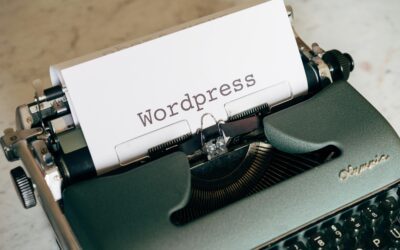Having a beautiful website is great—but if it isn’t secure, it could be doing more harm than good. Website security is one of the most overlooked aspects of owning a site, yet it’s one of the most important.
Whether you’re running a business, managing a blog, or operating an e-commerce store, your website is vulnerable to cyber threats 24/7. Hackers, bots, and malware are constantly scanning the web for weak spots—and if your site isn’t protected, it’s only a matter of time before you become a target.
Here’s why website security should be at the top of your priority list.
1. Website Security Protects Your Business and Customer Data
Think your site is too small to get hacked? Think again.
Most cyberattacks are automated. That means hackers don’t care if you’re a global brand or a one-person business. If your site has a vulnerability, it will be exploited. And when that happens, sensitive information can be exposed—including customer data, login credentials, and even payment details.
A solid website security strategy helps ensure that:
- User data stays protected
- Your website remains trustworthy
- You avoid potential legal and financial consequences
2. Secure Sites Rank Better on Google
Google has made it clear: website security is part of its ranking algorithm. If your site isn’t secure, you’re hurting your chances of showing up in search results.
Some ways security impacts SEO:
- HTTPS encryption (SSL certificate) is a ranking factor
- Google may flag or blacklist hacked sites
- Infected or spammy sites lose credibility and organic traffic
So if you’re working hard on your SEO, don’t ignore security—it’s a key part of the puzzle.
3. A Hacked Website Damages Your Reputation
One of the most costly consequences of a security breach is loss of trust. If visitors see warnings like “This site may be unsafe” or land on a hacked page, they’re unlikely to return. Worse, they might spread the word.
Website security issues can lead to:
- Spam content showing on your pages
- Redirects to malicious sites
- Browser warnings or Google blacklisting
It only takes one incident to shake your credibility. A secure site, on the other hand, reinforces that your business is professional and trustworthy.
4. Security Issues Can Take Your Website Offline
Cyberattacks don’t just steal data—they can take your entire site down. Whether it’s a brute force login attack, a malware infection, or a denial-of-service (DDoS) attack, the results are the same: downtime, lost revenue, and frustrated users.
For e-commerce websites, that could mean hundreds or thousands in lost sales. For service-based businesses, it could mean missed leads or ruined first impressions.
Preventative website security keeps your site up, running, and earning.
5. You Might Be Legally Required to Secure Your Website
Depending on your industry and location, data privacy laws may require your site to have certain website security features. These include:
- SSL encryption (HTTPS)
- Privacy policies
- Proper data handling and breach notifications
Regulations like GDPR, CCPA, and others are enforcing tighter rules on how websites manage personal data. Failing to meet these standards could result in fines or lawsuits.
6. Proactive Website Security Is Easier (and Cheaper) Than Recovery
Recovering from a hacked website is stressful, expensive, and time-consuming. You may need to:
- Hire a developer to clean up your site
- Rebuild your content and design
- Apologize to affected users
- Submit reconsideration requests to search engines
All of this can be avoided with proactive website security measures. Things like:
- Keeping software and plugins updated
- Installing a firewall
- Using strong passwords and two-factor authentication
- Regularly scanning your site for vulnerabilities
- Backing up your site frequently
A small investment in security now can save you a massive headache later.
Key Website Security Tools Every Site Should Have
If you’re not sure where to start, here’s a quick checklist:
✅ SSL Certificate (HTTPS)
✅ Daily Backups
✅ Web Application Firewall (WAF)
✅ Malware Scanning & Removal
✅ Secure Hosting Provider
✅ Updated CMS, Themes, and Plugins
✅ Strong Password Policies & 2FA
✅ User Role Management
Final Thoughts: Don’t Take Website Security for Granted
Your website is your digital storefront—and just like a physical store, it needs locks, alarms, and regular maintenance to stay safe.
Neglecting website security puts your business, your customers, and your reputation at risk. But by taking a proactive approach, you’ll protect your data, improve your SEO, and build trust with every visitor.
Security isn’t just for big corporations—it’s for every website. Including yours.
Need help securing your site? Whether you’re just getting started or cleaning up a past breach, now’s the time to take website security seriously. Our Website Care & Security plan takes care of everything for you.





0 Comments